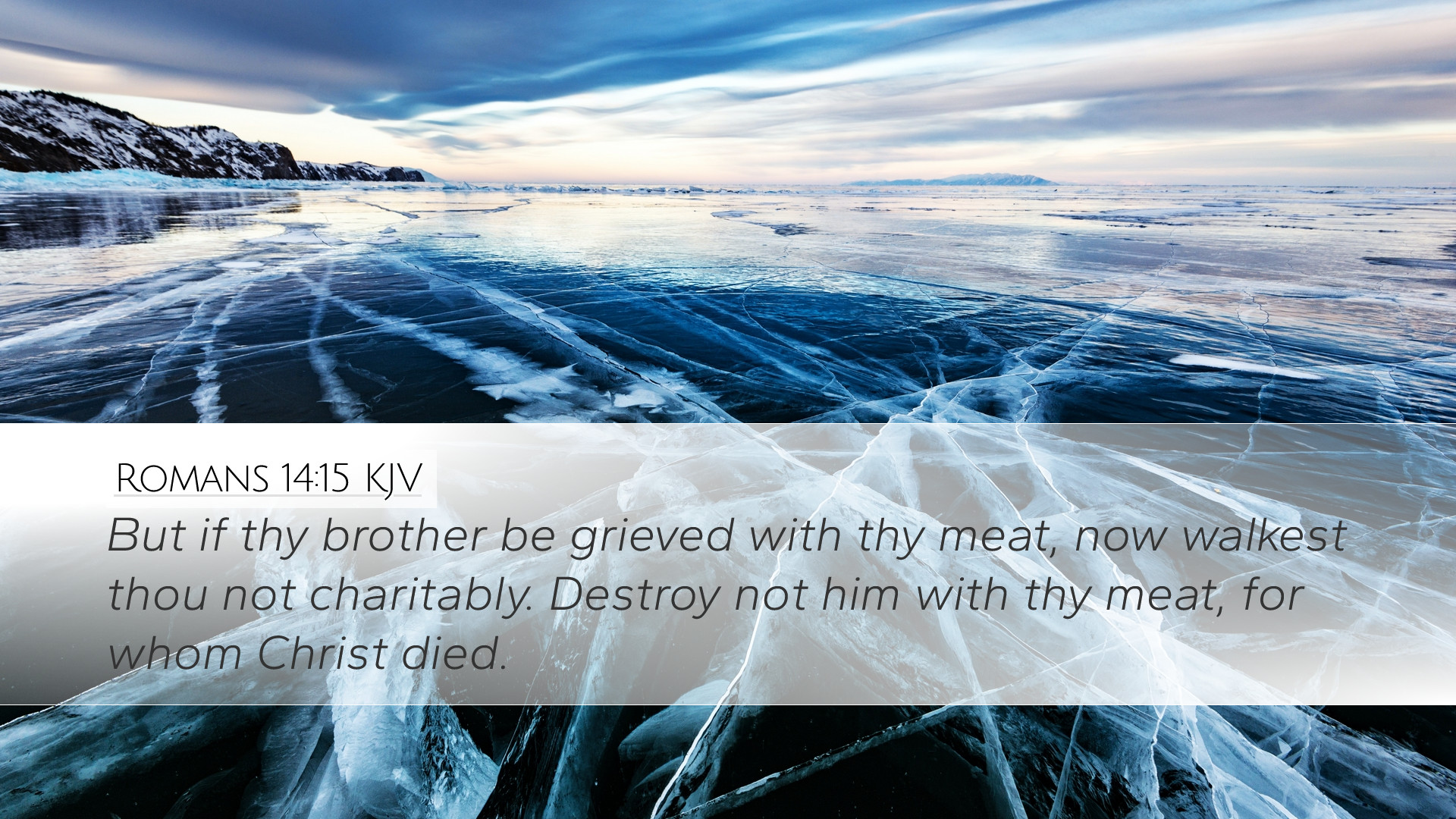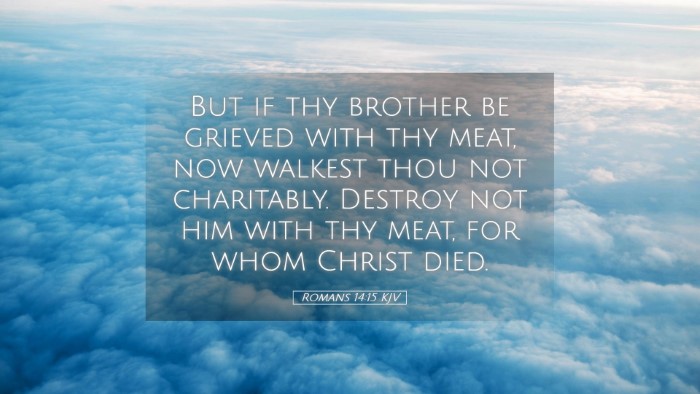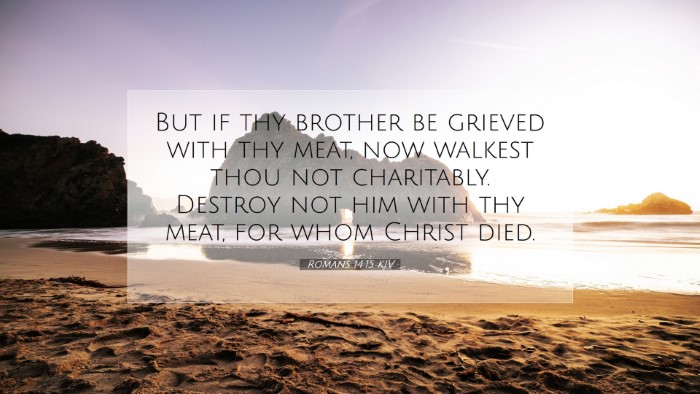Old Testament
Genesis Exodus Leviticus Numbers Deuteronomy Joshua Judges Ruth 1 Samuel 2 Samuel 1 Kings 2 Kings 1 Chronicles 2 Chronicles Ezra Nehemiah Esther Job Psalms Proverbs Ecclesiastes Song of Solomon Isaiah Jeremiah Lamentations Ezekiel Daniel Hosea Joel Amos Obadiah Jonah Micah Nahum Habakkuk Zephaniah Haggai Zechariah MalachiRomans 14:15
Romans 14:15 KJV
But if thy brother be grieved with thy meat, now walkest thou not charitably. Destroy not him with thy meat, for whom Christ died.
Romans 14:15 Bible Commentary
Commentary on Romans 14:15
Verse Text: "But if your brother is grieved with your food, you are no longer walking in love. Do not destroy with your food the one for whom Christ died."
Introduction
In Romans 14, the Apostle Paul addresses the important theme of Christian liberty and the influence of individual actions on fellow believers. Romans 14:15 serves as a crucial reflection of this theme, emphasizing the necessity of love in all interactions among believers.
Exegesis of Romans 14:15
The verse can be understood through several key points, which provide a deeper insight into Paul's intentions:
- The context of Christian liberty: Paul speaks about the freedoms believers have regarding dietary practices and how these freedoms can positively or negatively affect others.
- Consideration for others: The phrase "your brother is grieved," reflects the sensitivity required in Christian relationships, calling for self-examination regarding the impact of individual liberty.
- The principle of love: The directive to walk in love serves as a foundational ethical standard for making choices within the community of faith.
- Value of Christ's sacrifice: The statement "the one for whom Christ died" reminds believers of the intrinsic value of each individual within the body of Christ, elevating the necessity of considering their feelings and spiritual welfare.
Insights from Commentators
This verse has been reflected upon by several notable commentators:
- Matthew Henry: Henry emphasizes that love must govern all actions. He underscores that even in matters of liberty, a believer must ensure that their freedom does not lead to another's spiritual distress or downfall. He states, "We must consider how our actions affect the peace and joy of our brethren."
- Albert Barnes: Barnes highlights the expectation of mutual consideration among believers. He notes that while believers have the right to their liberties, this right must yield to the higher law of love. Barnes articulates a belief that harming another's spiritual condition for the sake of freedom is a misapplication of Christian liberty.
- Adam Clarke: Clarke offers a theological and practical understanding, asserting that true Christianity must express itself through love. He identifies the consequences of causing a fellow believer to stumble, expressing a warning against prideful application of freedom. Clarke states, "A Christian must refrain from the use of any lawful thing that may lead to the ruin of a soul."
Theological Significance
The verse carries significant theological implications:
- Community Responsibility: It highlights the interconnectedness of believers, pressing the need for actions to be reflective of a community where each individual's well-being matters greatly.
- Christ-Centered Love: The ultimate challenge and call to believers is to reflect the sacrificial love of Christ in their interactions.
- Valuing Others: The verse compels believers to see others not simply as fellow church members, but as sacred individuals purchased by Christ's blood, deserving of respect and care.
Practical Applications
Pastors, theologians, and students may draw several practical applications from this verse:
- Self-examination: Before exercising personal liberties, Christians should reflect on how their actions might affect others in their faith community.
- Promoting Unity: Emphasizing love in practice can foster a culture of unity and empathy within the church, essential for spiritual growth and mutual support.
- Teaching and Discipleship: Church leaders should educate congregants about the balance between Christian liberty and responsibility, preparing them to be aware of others' sensitivities.
Conclusion
Romans 14:15 stands as a profound directive for believers, urging the practice of love in the context of Christian liberty. By considering one another's well-being, believers not only honor Christ’s sacrifice but also nurture a church environment that reflects His grace. Through the insights provided by various commentators, we can appreciate the depth of this single verse and the call to be vigilant and loving in our communal Christian walk.


